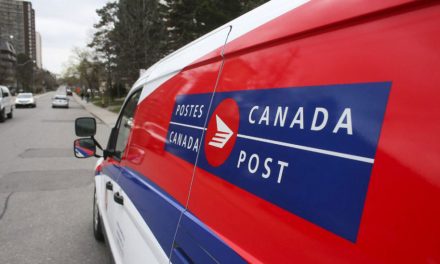
UPS wants a level, competitive playing field – Canada Post Has Unfair Advantage
Harvie Andre has apparently changed his position in arguing against the need for further regulation of Canada Post's activities. It was Mr. Andre himself who, as Minister responsible for Canada Post, introduced Bill C-149 into Parliament to fill the regulatory void at Canada Post. The purpose of the Bill, as stated in section 3, was to: "establish a process of independent review of the rates and services of Canada Post corporation … by establishing … an independent, national body whose duty is to hold public hearings and make recommendations on proposed changes in postal rates, major service proposals and any other matters referred to it by the Minister."
It was Mr. Andre who, recognizing that the lack of regulatory control over Canada Post harmed consumers, formed an independent third party agency, appointed a chairman, and allowed that body to begin rejecting Canada Post's applications for stamp price increases — even before his legislation had passed Parliament!
At the time, Mr. Andre was acting on the advice of a government-appointed committee (The Marchment Review Committee on the Mandate and Productivity of Canada Post) which had expressly recommended that the postal monopoly "be regulated in its rate increases by a neutral third-party regulatory agency." Mr. Andre's department then proceeded to study how the postal monopolies in the United States, Britain and Australia were regulated, and reported favourably "that the external regulatory mechanism in those three countries appeared to reduce political interference, increase public participation, and improve postal performance".
The press release issued by Harvie Andre at that time to justify the creation of the regulatory agency stated that: "Canada Post is unique among the providers of major public services that enjoy a monopoly in this country, as it is not subject to any kind of outside review."
That statement was accurate then, and it is accurate today. Mr. Andre's legislation to create the regulatory agency was never passed due to the intervention of a federal election. As a result, the agency was disbanded.
Robert Campbell, dean of arts at Wilfrid Laurier University and one of the foremost authorities on Canada Post, sums up the situation in his book The Politics of the Post: "After a short-lived experience with third-party regulation … this Corporation [Canada Post] has been effectively unregulated in any formal sense. This is an interesting and unique situation for a state monopoly".
The Chrétien government decided to appoint another commission to investigate the practices and mandate of Canada Post, after receiving a series of complaints from various sectors of the Canadian economy about lack of control over Canada Post. That commission provided a lengthy report to government in 1996 that stated Canada Post had "developed such a reputation as an over-aggressive, indeed vicious, competitor that a significant number of Canadians, particularly operators of small businesses, are quite literally afraid of it." The same commission concluded that the lack of oversight over Canada Post "has created a serious anomaly: an unregulated public sector monopoly engaged in unrestrained competition with the private sector."
This is important because Canada Post is by no means a small player in certain businesses where it does not enjoy a monopoly. For instance, Canadians may be surprised to learn that Canada Post is by far the most powerful force in the Canadian courier business, with a market share many times larger than the nearest competitor. In addition, Canada Post has recently expanded into such businesses as e-commerce, business forms, and banking, where it competes directly with the private sector. Is this a proper role for a company such as Canada Post that is 100% government owned?
What public policy reasons justify the entry of Canada Post into businesses other than lettermail? Why did the government sell off its control of other businesses that compete with the private sector (such as Air Canada, CN Rail, and Petro-Canada), at the same time that it was paying millions of dollars to buy Purolator, the largest courier company in Canada? Purolator is now generating significant financial losses for the government.
If this situation is allowed to continue, there is a risk that Canadians will be asked to pay higher stamp prices to offset the losses that Canada Post incurs in its courier business. There is no regulatory body in place today in Canada (such as a "CRTC for the post office") to protect consumers and competitors from such practices.
UPS acknowledges that the government has the right to create and operate a monopoly on lettermail. Furthermore, UPS agrees that it is up to the Canadian government to decide whether it will choose to allow Canada Post to compete in a non-monopoly sector of the economy, such as e-commerce or the courier business. However, UPS asserts that if the government chooses to allow it, the government has an obligation to ensure that Canada Post does not cross-subsidize its services, and that Canada Post competes fairly in those sectors. Canada Post must not receive special income tax, customs and labour law privileges from government that nobody else receives — privileges that place its competitors in the private sector at a competitive disadvantage.
All UPS is seeking is a level, competitive playing field. Mr. Andre should be the first person to know that we aren't getting it.
Tad Segal is director of public relations at United Parcel Service.










